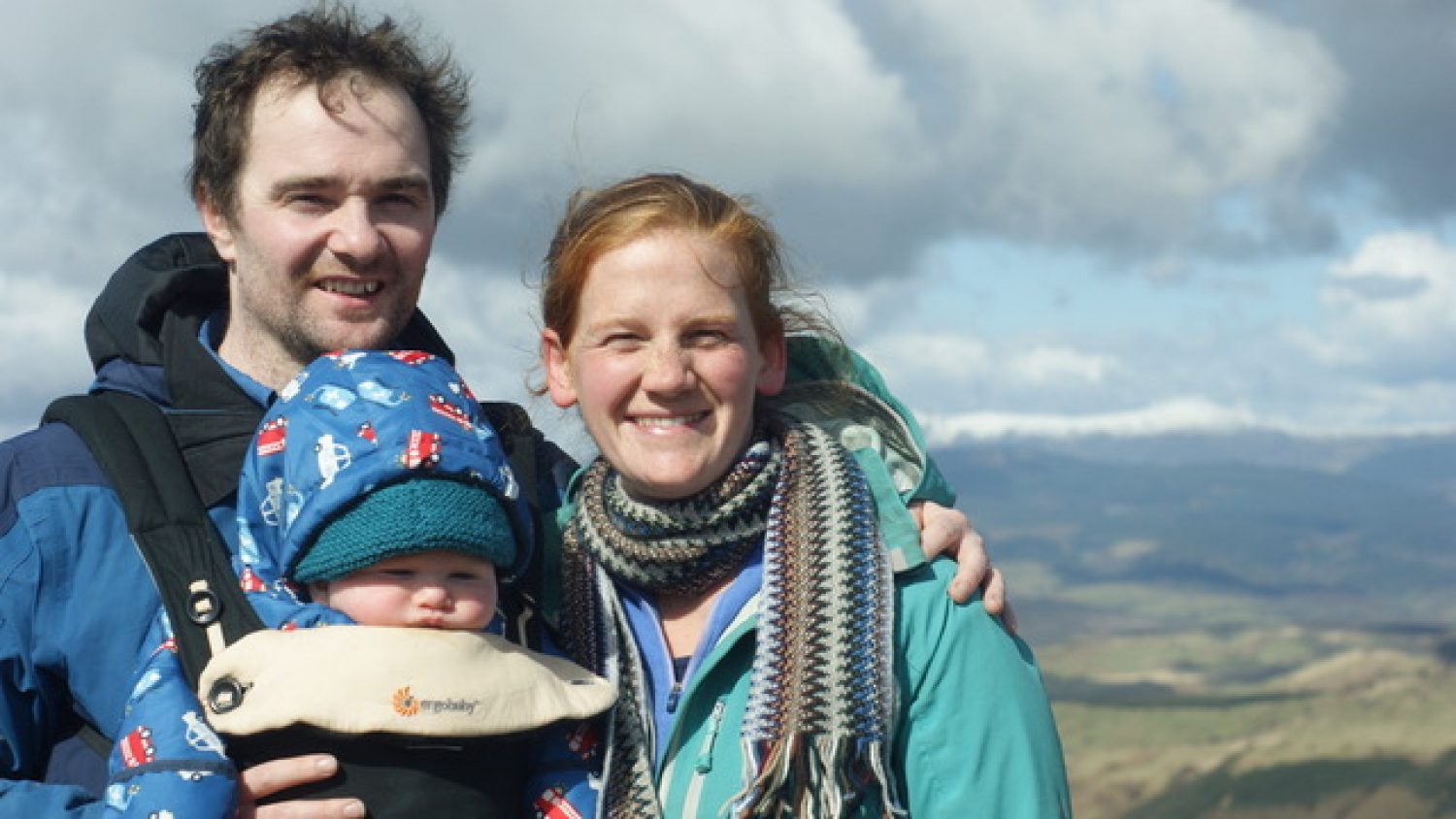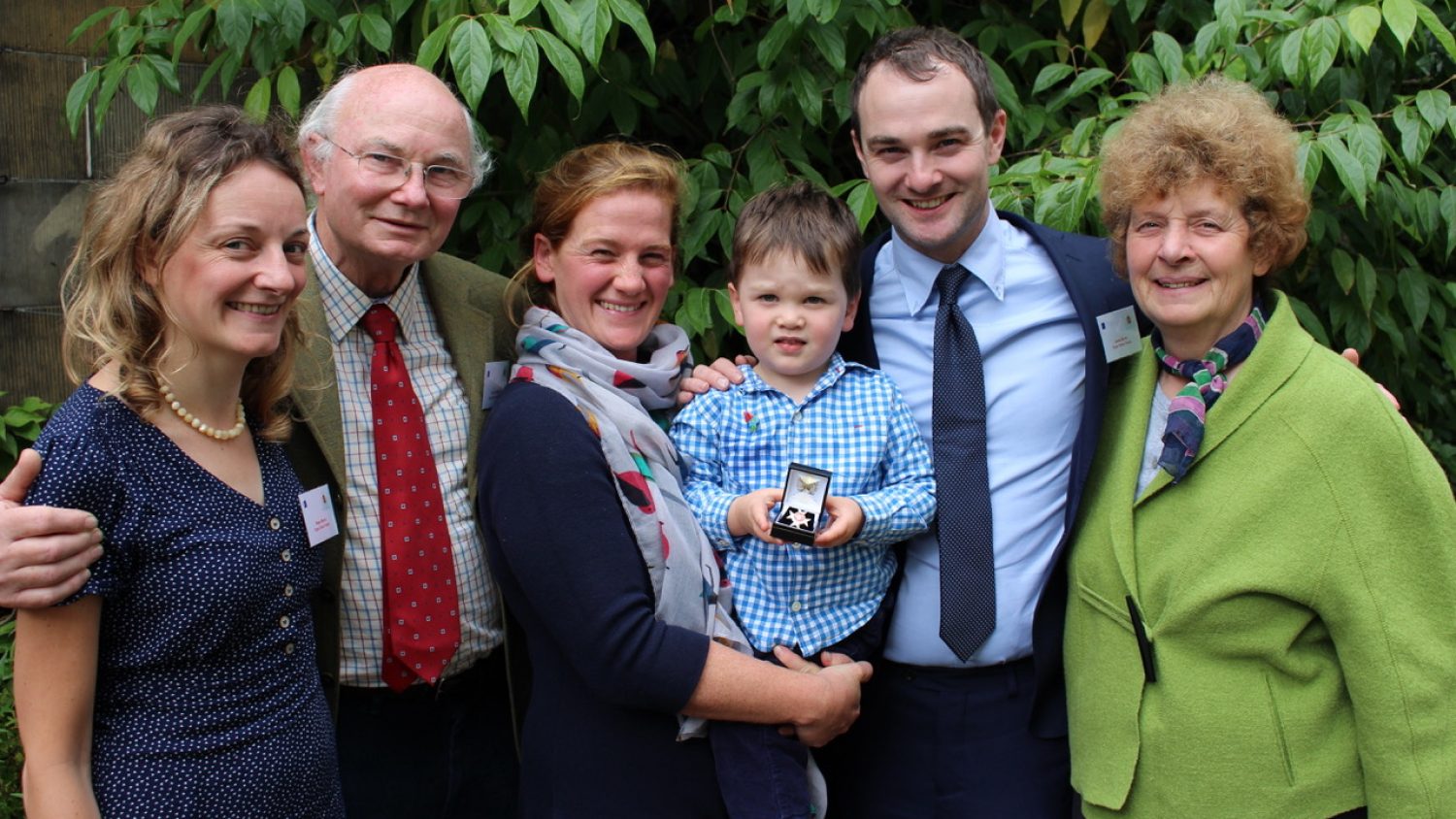Seven minute read
In 2020, nearly 3,400 people received life-changing transplants, thanks to organ donation.
For Organ Donation Week, we spoke to Gemma Morris about her family's decision to donate her husband’s organs after his death and what this decision means to her today.
Could you tell us about your husband, Will?
Will and I met at university and both became doctors. Will loved his job and he was great at it. He was such a kind person and generous with his time and his words.
He was always late home because if someone caught him on the way out of work and needed to talk, he was there for them. He was big-hearted, with endless energy, always up for having fun.
When did you first realise that someone was wrong with Will’s health?
Will was about to finish his paediatric training, and our son was 18 months old, when he started getting headaches. His GP gave him pills, but they didn’t help. I suggested he get his eyes checked and that’s when they found swelling on the back of his eye.
What happened next?
That night, we went to A&E, and then to the neuro-surgery ward. The next day, Monday, we found out that Will had a brain tumour and would need surgery.
It was the day after surgery that the reality hit Will. It was not that he was naïve or ignorant of what the diagnosis meant, he just wanted to focus on the positive.
Wednesday was our wedding anniversary and it was a lovely day. Will got to see his family and colleagues kept popping in. We even had chocolate cake on the ward.
Later that evening, they called us. Will had had a seizure and not woken up. They took him to theatre, then to neuro intensive care.
At what point did the subject of organ donation come up?
The next morning, the doctors took us to a side room and said that they were pretty sure that Will was brain-stem dead. Will’s sister, who’s also a doctor, asked about organ donation right then.
I knew that Will was on the organ donation register. I’d seen the card in his wallet, but more importantly I just knew him. We, as his family, knew that’s what he would have wanted.
There was no more detail at that point, but shortly afterwards I was handed to the NHS blood and organ donation team.
How did the NHS blood and organ donation team help you through the process?
There’s one transplant coordinator, on a 12-hour shift, who is with you the whole time. They took me to a room and asked questions about Will’s lifestyle and which organs we wanted to donate. They also asked whether, if an organ wasn’t healthy enough to donate, they could use it for research. I said yes.
It’s an intimate job and they were always so human— there was no question you couldn’t ask them. They give you a lot of autonomy in the whole process: at every step, there’s a choice.
We donated Will’s liver, both of his kidneys, his pancreas, cornea and heart. Unfortunately, his lungs were too damaged to donate, because of having been on a ventilator, so they went to research.
They used his blood to search the organ donation register for a match. Throughout the night, I got updates whenever they found a match. Amid the doom and gloom, it was good to have a reason to be hopeful.
When and how did the organ donation take place?
The operation depends on having a specialist available, on theatre space, and on all the recipients being ready and in hospital to receive the organs. I stayed with Will the night before, along with his twin brother and his mum.
The following morning, the operation took place. We walked with the anaesthetist to the surgery so we could say goodbye to Will just before he went in.
They phoned us after the operation to say it had all gone successfully. We even saw a helicopter flying off — we like to think that was one of Will’s organs on the way to its recipient.
Did organ donation affect the funeral arrangements at all?
It didn’t for us, although it might make a difference if you need to have a funeral very quickly. I saw him after the surgery, just for a couple of minutes. The care they took over his body was unbelievable. He was shown absolute respect even beyond death.
Did you find out who received Will’s organs or how they had been used?
We got a letter from the transplant team two weeks after he died, containing a second envelope with the details of who had received Will’s organs. It was very sensitively done. If you don’t want to know, you don’t have to open the envelope.
Did you decide to read the letter?
Yes. There’s just a sentence about who got which organ. Something like: ‘a man in his 40s received the heart’. In some cases, there’s information about how long that person has been waiting for transplant, others not. Just the basic facts.
I was really glad to know. It meant for me that Will’s story hadn’t ended after the operation. I wanted to know what happened next.
Was there any further contact after that?
We were sent information about the Order of St John about a year later. I’d never heard of it before. They invited us to an event at the Edinburgh Botanical Gardens, where there’s an organ donation memorial, to receive the medal. I found huge comfort in that.
It’s hard to remember anything from the first year after someone dies, but a year gives you long enough to begin to come to terms with it.
What was the ceremony like?
It was lovely and really powerful. It included a presentation from someone who had received an organ donation, then my son and Will’s twin brother went up to receive the medal. It was an important marker for us.

